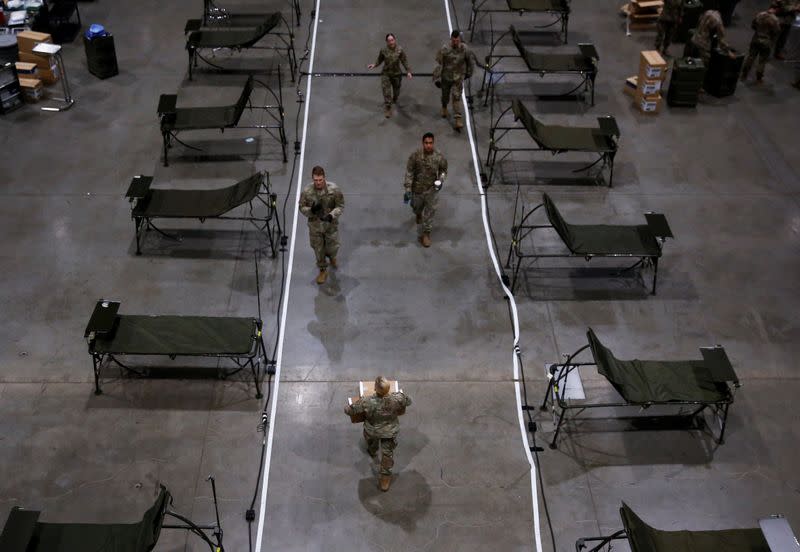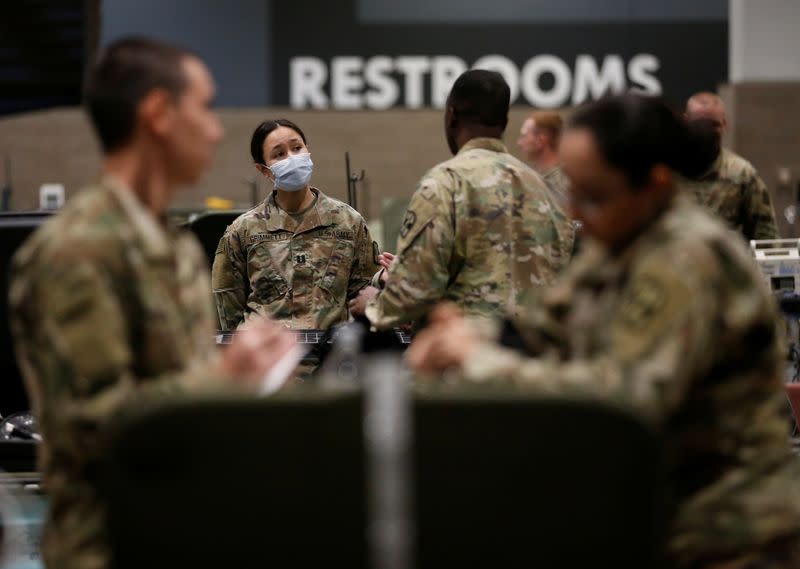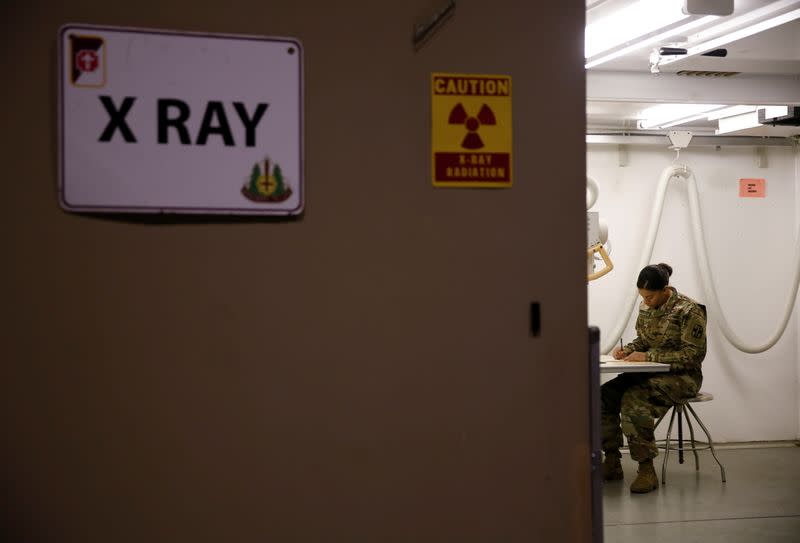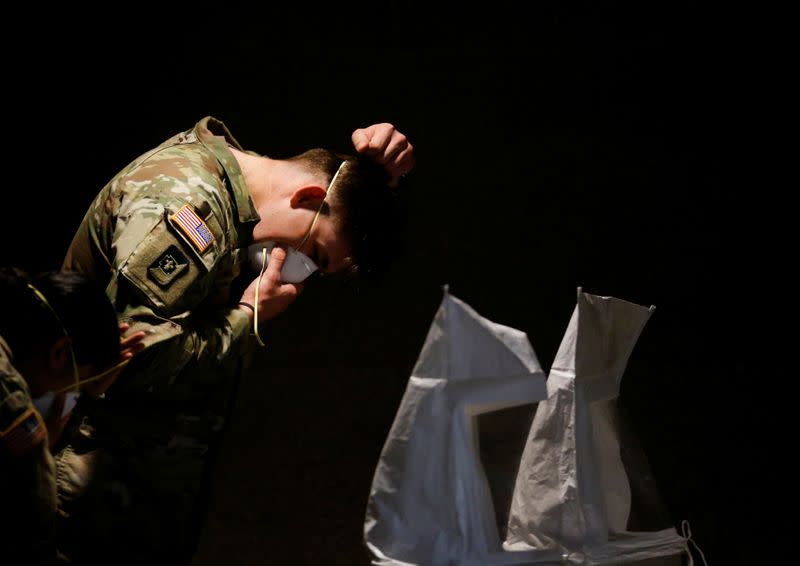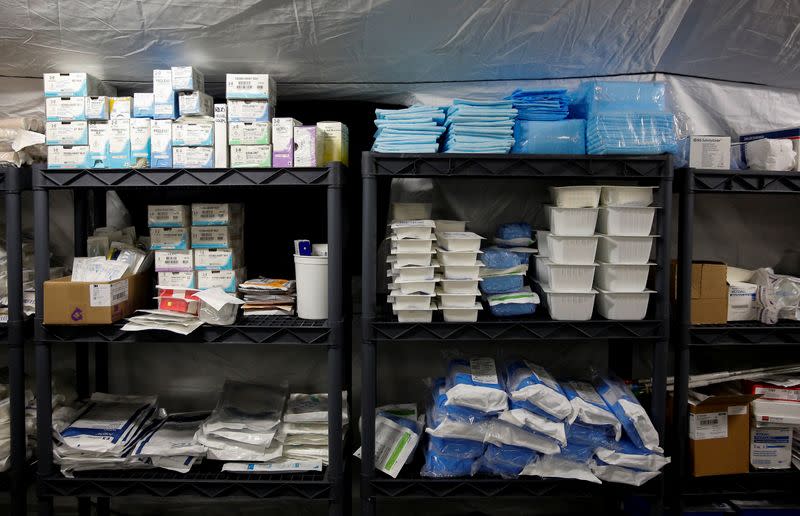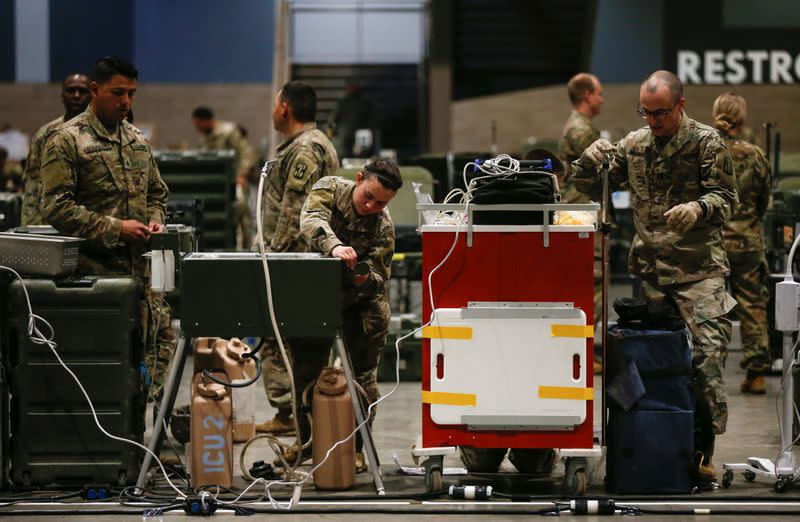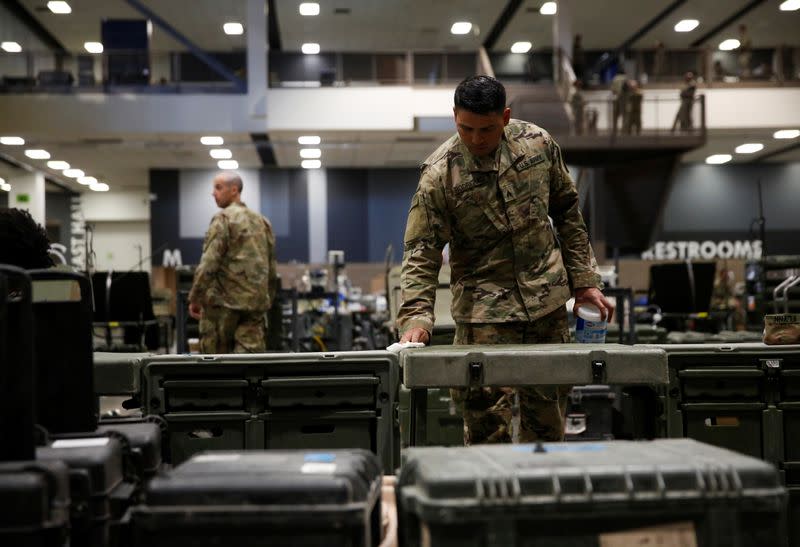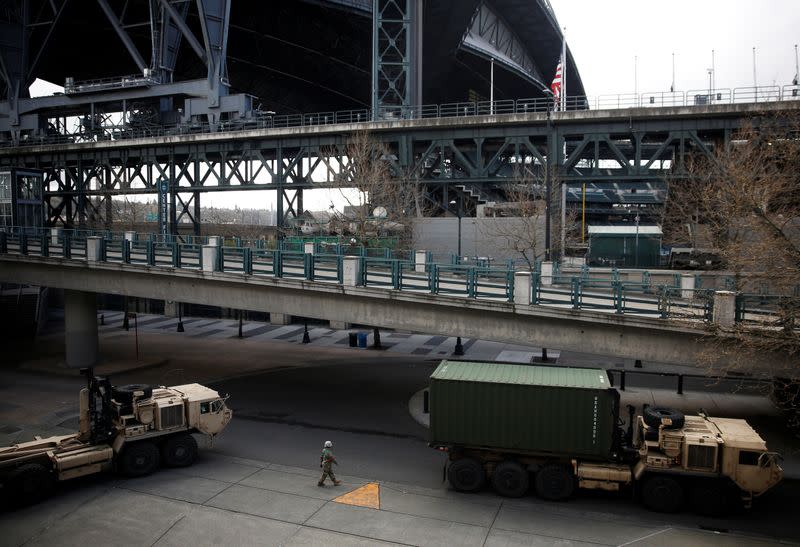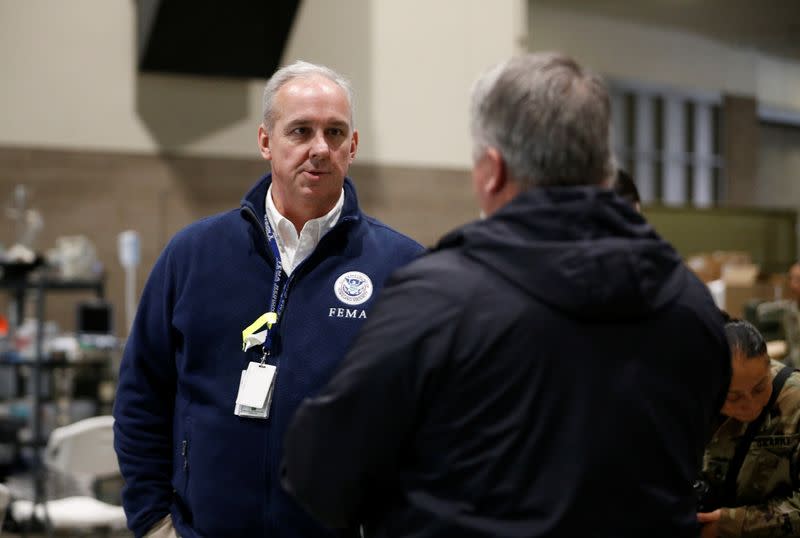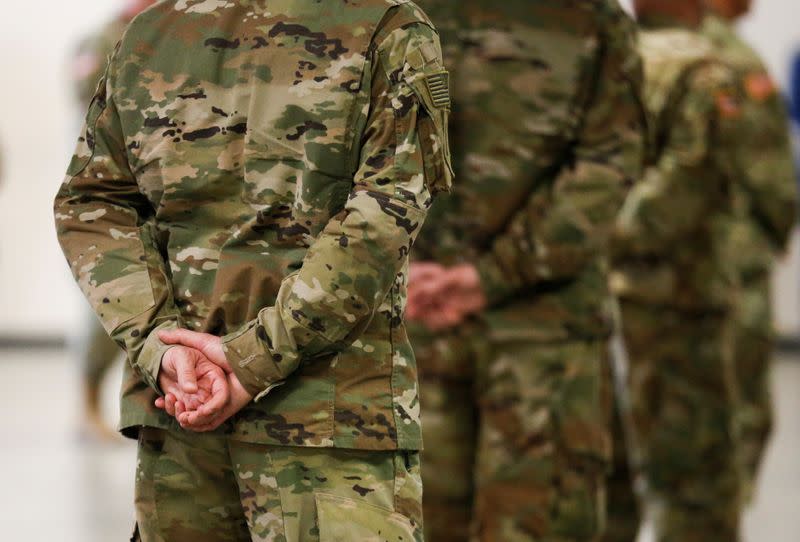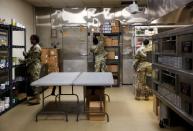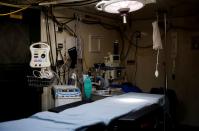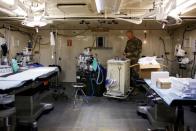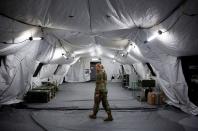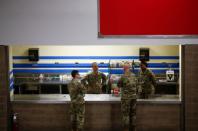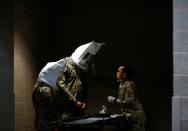U.S. Army rolls into Seattle with field hospital built for combat
By Phil Stewart
(Reuters) - Army Specialist Jordan Acosta thinks his family would have been more comfortable seeing him deploy to Iraq than this field hospital in the U.S. city of Seattle, one of the hardest-hit by the coronavirus.
"I know my wife would be less worried," Acosta, 27, says with a smile.
A practical nurse specialist with a four-month-old baby at home, Acosta is part of the team of hundreds of U.S. soldiers setting up a field hospital in Seattle that will treat non-coronavirus patients, relieving pressure on civilian hospitals.
Instead of being pitched in a war zone, this field hospital is rising inside a cavernous events center adjacent to CenturyLink Field, the staduim where Seattle's football team normally plays and which once had been scheduled to host a "Dancing with the Stars" performance this week.
Still, this facility would be easily recognizable to someone who has visited a combat field hospital in Iraq or Afghanistan -- from the cots that serve as hospital beds to the Army tents used for sterilizing surgical tools. Other covered shelters inside the events center will be used for storing blood bags, X-ray equipment and surgery.
Starting next week, the goal is to have around 250 hospital beds available to patients served by a large intensive care operation, which Acosta will help staff.
The camouflage-clad soldiers and their Army equipment, like the U.S. military hospital ships now moored in New York and Los Angeles extend a visual image to the idea that the United States is at war with the coronavirus -- which is estimated to potentially kill upwards of a 100,000 Americans and has ravaged the global economy.
At least 227,678 cases of the novel coronavirus have been reported in the United States and 5,377 people have died from the COVID-19 disease, according to a Reuters tally of state and local government websites on Thursday. (See graphic here: https://tmsnrt.rs/2w7hX9T)
The deployments are coming as the military itself is grappling with infections in its ranks at bases around the world -- and even on an aircraft carrier, whose commander has accused the Navy of failing to do enough to protect its sailors.
"The way I look at it is every single medical professional in the United States Army needs to be in this fight," Army Chief of Staff General James McConville, who visited the field hospital on Wednesday, told Reuters in an interview.
Still, McConville has caveats -- including for those combat medics deployed overseas, who he said must continue their missions, and other Army personnel still needed at base hospitals. It's unclear how many more medical personnel the Army can spare.
INFECTION RISK
For Lieutenant Colonel Jason Hughes, the 10th Field Hospital commander, the mechanics of getting the hospital up and running are, frankly, a lot less stressful than some of overseas missions in the past -- including working in remote places in Africa or deploying to Haiti.
One big difference he sees with Seattle is the effort to give civilian patients a bit more privacy, putting up partitions between the beds.
"Out in the field, we don't have partitions. We just put soldiers next to soldiers, next to soldiers, to take care of them," Hughes said. But the real challenge for Hughes, Acosta and others deploying to this field hospital is the same one facing healthcare workers around the world: ensuring that they are taking precautions to avoid being infected by the coronavirus.
Although Seattle officials are trying to screen patients to prevent the Army field hospital from treating anyone who could have the coronavirus, there is always the risk that, in a major outbreak area, patients who are infected but asymptomatic could arrive.
Screening protocols are meant to weed out patients with the virus and direct them to civilian hospitals instead.
"I think they need to be very vigilant," McConville said.
He recalled how in Afghanistan he would visit field hospitals almost every other night and give out Purple Heart decorations to soldiers wounded in combat.
Asked whether U.S. military healthcare workers would receive Purple Heart decorations if they are infected by the coronavirus, McConville paused.
"That's an interesting question. We really haven't thought our way through this as far as for illness," he said. "Usually they're (awarded for) wounds inflicted by an enemy. And I know we have called this an invisible enemy, but I'm not sure we're at that point yet."
(Reporting by Phil Stewart; additional reporting by Idrees Ali; Editing by Mary Milliken and Aurora Ellis)

